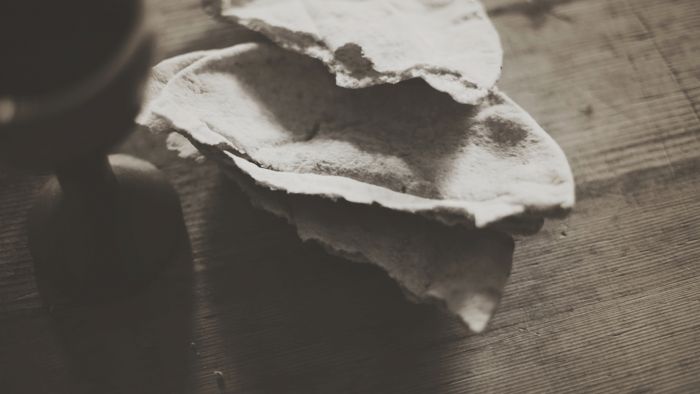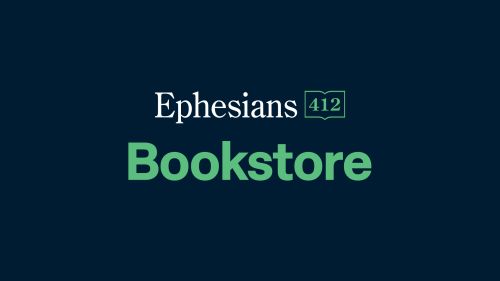In my last post I wrote about how Jesus’ triumphal entry into Jerusalem was a pivotal point in tying together the threads of our redemption. God has always had a plan to save a people for himself. The great thing about living life on this side of the cross is that we can look back through the Old Testament and see shadows of the Gospel throughout.
For today’s post I’ll be looking at Passover, communion, and remembering.
The Tables are Set
“A Greater Plan” is a story song that takes place in Jerusalem following Christ’s coming to the city. This Passover meal was inaugurated by Moses in Exodus 13 with the specific purpose of remembering, “…what the Lord did for me when I came out of Egypt” (Exodus 13:8). Year after year the children of Israel had shared a meal to remember this exodus, and the disciples were sitting down to celebrate this thousand year old tradition
There is death in the air.
There is blood on the ground,
and the tables are set,
in every home in this town.
For the LORD knows our state,
Oh how he knows we forget,
and so we’re drinking this cup,
and we’re eating this bread.
To remember when your grace was found
in a perfect, spotless lamb.
And the blood he shed let our weary heads
rise to see a greater plan.
From Passover to Communion
It is no coincidence that Jesus’ last supper is the Passover Seder. In the story that God is writing, he is about to create a new feast that builds on what he has already done. The second verse of “A Greater Plan” imagines this shift and fulfillment from the perspective of the disciples in the room that night.
We remember it well
Every word that was said
When this truth came to dwell
It still rings in our heads
For the Lord raised his cup and made a covenant there
He said this is my body and blood
I’m the lamb that’s prepared
So we’ll remember when your grace was found
as a perfect, spotless lamb
And the blood Jesus shed let our weary heads
rise to see a greater plan
The Passover meal remembers the deliverance of God’s people through the death of the first born. So does communion. Jesus is the image of the invisible God, the firstborn of all creation (Colossians 1:15). We join his family through faith (Romans 8:14-17), and we proclaim our adoption through baptism (Romans 6:4). We are united in the likeness of his death and resurrection. When we examine ourselves before taking communion (1 Corinthians 11:28), we are looking for areas of our lives that don’t bear the family resemblance. We confess those sins and trust for God’s grace to cover them as we, by the strength of the Holy Spirit, move on in repentance (1 John 1:9).
Communion is distinct from the Passover feast because it celebrates the victory of a greater deliverance: Jesus saves us from sin and death. There is more than that though. While both Passover and Communion look back at what God has done, only Communion looks forward to when Jesus will “drink it new with you in my Father’s kingdom” (Matthew 26:28–29).
“For as often as you eat this bread and drink the cup, you proclaim the Lord’s death until he comes” (1 Corinthians 11:26).
The Shadow of the Gospel
The book of Exodus tells the story of a people, held in slavery, who are led by God’s mighty hand into a land that he has been preparing for them. God sends them a deliverer, Moses, who performs signs and miracles that confirm that he is God’s man. In the final act that leads to salvation, God reveals that he will pour out his judgment on the land through death and that only those who have hidden themselves under the blood of a perfect lamb will be spared.
Do you see it?
The gospel tells us a similar story of a people, set apart by God, who have been held in slavery to sin. Jesus, God’s son and our deliverer, performs signs and wonders to fulfill scripture that prove, without question, he is the messiah. Ultimately God pours out the judgment that we deserve on Jesus, the lamb who was chosen from before the foundation of the world (Revelation 13:8), as his blood is willingly shed for us at the cross. Through God’s mercy, we believe and are saved.




